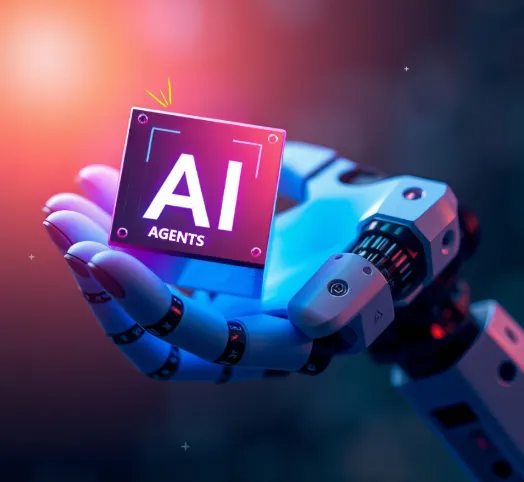The Rise of AI Agents in Modern Workplaces
The way we work is evolving at an unprecedented pace, and AI agents are at the center of this transformation. These intelligent systems, driven by advanced machine-learning algorithms, go far beyond basic automation. They are designed to function independently, managing everything from routine administrative tasks to complex problem-solving, allowing employees to shift their attention to strategy and creativity.
Unlike traditional software, AI agents learn and adapt within their environment, integrating seamlessly into existing workflows. Their ability to collaborate with human teams makes them more than just tools—they are becoming active partners in driving efficiency and innovation. As organizations embrace these systems, the challenge lies in balancing human-AI collaboration to create a productive, harmonious work environment. Businesses that understand the core functions of AI agents today will be better prepared for the workplace of tomorrow.
Why AI Agents Are Changing the Game
Introducing AI agents into daily operations delivers benefits that are hard to ignore. One of the most impactful advantages is their ability to take over repetitive, time-consuming tasks, giving employees the freedom to focus on higher-value work. This not only improves productivity but also enhances job satisfaction by reducing routine workloads.
AI agents also excel in delivering consistent performance around the clock. Unlike human teams, these systems do not experience fatigue, which is a major advantage in areas like customer support. Businesses can maintain continuous service, providing instant responses and improving customer satisfaction without increasing labor costs.
Data analysis is another area where AI agents stand out. They can process massive volumes of information in real time, uncovering trends, forecasting outcomes, and supporting informed decision-making. This analytical power gives businesses a competitive edge in rapidly changing markets.
Scalability is yet another strength. As companies expand, AI systems can easily handle greater workloads without requiring proportional increases in staffing. This flexibility makes them a vital tool for sustaining growth without sacrificing efficiency.
Challenges and Ethical Considerations
While the benefits are clear, introducing AI agents into the workforce comes with challenges. One major concern is the potential for job displacement, as tasks once handled by people are increasingly managed by machines. To address this, organizations must focus on reskilling initiatives and create roles that complement AI-driven workflows.
Another critical issue is data privacy. AI agents often work with sensitive information, which requires strict safeguards to ensure compliance and maintain customer trust. Transparency in how these systems operate is equally important. Businesses need to explain how decisions are made, especially when algorithms influence critical areas like hiring or resource allocation.
Bias in AI models remains a pressing concern. If training data contains biases, these can be amplified in real-world applications, leading to unfair outcomes. Regular audits and diverse datasets are essential to mitigate this risk.
Lastly, building trust is crucial. Employees and stakeholders must feel confident that AI agents operate ethically and reliably. Clear communication, ongoing monitoring, and adherence to ethical guidelines are key to creating a positive relationship between humans and AI.
Best Practices for Integrating AI Agents
Successfully onboarding AI agents requires more than just adopting the technology—it calls for a strategic, human-centered approach. The first step is defining clear objectives for what the AI agents will achieve and aligning them with organizational goals. Selecting the right platforms and tools is equally important to ensure smooth integration.
Employee training is another critical component. Teams need to understand how to collaborate with AI agents and how these systems will enhance, rather than replace, their roles. Transparent communication during this process helps reduce uncertainty and builds confidence in the technology.
Organizations should also invest in scalable infrastructure and implement feedback loops to monitor and refine AI performance. Regular evaluations ensure that the technology evolves with business needs and operates within ethical boundaries.
By combining technical innovation with thoughtful implementation, businesses can unlock the full potential of AI agents while maintaining a strong human connection in the workplace.
